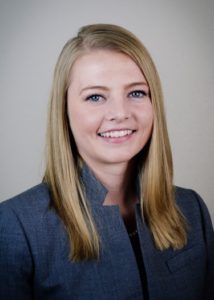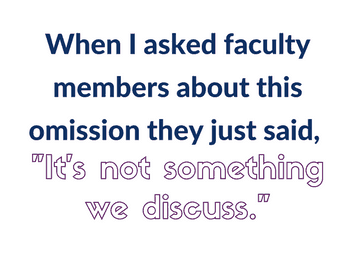 Missouri has never been known for being progressive, but I did not know quite the extent of it until I began preparing for residency. I am a sixth year medical student at the University of Missouri – Kansas City School of Medicine (UMKC) in the BA/MD program, and our curriculum is not drastically different from other medical schools. Like many others, it lacks in family planning. This year I created a family planning lecture within UMKC’s obstetrics and gynecology clerkship to address this educational gap. The added lecture has galvanized other medical students at UMKC to become more involved with Medical Students for Choice, although we are not officially recognized by the university. More students are now interested in learning about family planning, and a group of UMKC students, including myself, will attend MSFC’s Conference on Family Planning in December.
Missouri has never been known for being progressive, but I did not know quite the extent of it until I began preparing for residency. I am a sixth year medical student at the University of Missouri – Kansas City School of Medicine (UMKC) in the BA/MD program, and our curriculum is not drastically different from other medical schools. Like many others, it lacks in family planning. This year I created a family planning lecture within UMKC’s obstetrics and gynecology clerkship to address this educational gap. The added lecture has galvanized other medical students at UMKC to become more involved with Medical Students for Choice, although we are not officially recognized by the university. More students are now interested in learning about family planning, and a group of UMKC students, including myself, will attend MSFC’s Conference on Family Planning in December.
Prior to the addition of this family planning lecture, the anatomy, embryology, and physiology of reproduction were taught, but the family planning aspects of reproductive health were never discussed in our preclinical curriculum. During the obstetrics and gynecology clerkship we delved into pregnancy, contraception, gynecologic disorders, and spontaneous abortion, but there was no discussion of elective abortion. When I asked faculty members about this omission they just said, “It’s not something we discuss.”
The full scope of this omission did not become apparent to me until I was looking into rotations outside of my school and saw all of the options for family planning electives at other programs. It was then that I learned family planning is a sub-specialty of obstetrics and gynecology. I was appalled that I was unaware of all the sub-specialties that are a part of the field I want to pursue. I did not realize medical students are allowed to learn about these topics, because there had been no mention of them during my clerkship. I had believed that because the clerkship lectures helped me pass the shelf exam, they included the material necessary to provide the full scope of care for patients. I was wrong.
Elective abortion is not covered at my medical school because of state level policies on abortion provision and education. In Missouri, publicly funded institutions, such as UMKC, cannot offer abortions as an option to women with routine pregnancies. It was only after interviewing one of my faculty mentors that I learned that there is actually a gag rule on the word “abortion” imposed on our faculty. Put in place by the hospital and upheld by UMKC, the rule states that faculty members are not allowed to offer abortion as an option to our patients, provide written resources on it, or even discuss it with students. In addition to creating a barrier to care for patients now, this gag rule impedes the comprehensive reproductive health care that I will need to offer my future patients as a practicing ob-gyn. For the sake of my future patients, I could not let this gap in family planning education stand.
After polling other students to determine their support, I set out to reform the ob-gyn clerkship curriculum. To make my case strong, I spent a month researching curricula that other medical schools use to teach family planning. I ultimately decided it would be most pertinent for the class to learn about the methods of elective abortion and the anti-choice policies in our state.
I initially thought that a faculty member could present the lecture to medical students. However, when I showed the material to my faculty mentor he suggested that I present instead, as it would be easier to get the lecture approved if a student was teaching. As far as I know, the gag rule on faculty at UMKC does not apply to students. The fact that a student must fill in the place of a faculty member in order to circumvent unnecessary obstacles to our education is not ideal; however, I and many other students at UMKC are grateful for this solution. Since it has been added, no student has requested to be exempt from the lecture, although that is an option. I believe this is due in large part to the scientific and unbiased manner in which the material is presented, and the strong desire for family planning education with the ob-gyn clerkship.

I consider my presentations to be a peer-to-peer learning experience, and the response from fellow students has been excellent. Students stay after the lecture to ask questions to both myself and my faculty adviser, who is present during every lecture. I have interested a group of students in learning more about what family planning encompasses through these discussions as well. Despite restrictions on faculty around the word abortion, I am pleased with the level of enthusiasm and commitment already blooming on campus. It gives me hope that even when I leave in May, the spirit of learning will continue.